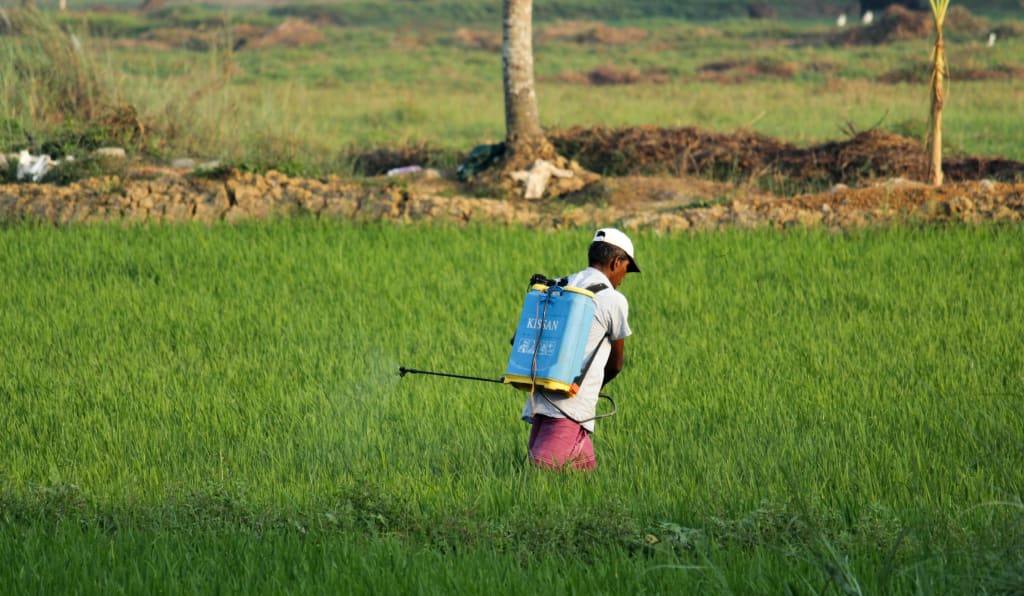Pesticides have been shown to kill up to 93% of endangered plant and animal species
Pesticides have been shown to kill up to 93% of endangered plant and animal species

Each year, the meat industry in the United States uses more than 100,000 tonnes of pesticides. According to new research, the chemicals in herbicides and insecticides pose a significant threat to the majority of endangered plant and animal species.
The most recent study was conducted by two non-profit organisations: the World Society for the Protection of Animals (WSPA) chapter in the United States and the Center for Biological Diversity. The researchers compiled a comprehensive report based on 2018 data. The British newspaper The Independent was the first to publish it.
Pesticides are a real danger to endangered species
According to scientists, the meat industry in the United States is having a devastating impact on the lives and health of endangered animal and plant species. At issue are primarily the pesticides that are used to grow the corn and soybeans that make the feed. More than 100,000 tons of pesticides are used each year in the United States.
According to the report, glisophate, a chemical compound that is an ingredient in herbicides and insecticides, may contribute to the death or serious health problems of up to 93 percent of creatures that are classified on the so-called Red List of endangered species. Some researchers say glisofate may also be harmful to humans.
Plant protection products have a negative impact on human life
Experts responsible for the report say that the U.S. Attorney’s Office has more than 13,000 lawsuits pending that specifically involve pesticides. They have been filed by people who have contracted a malignant cancer called non-Hodgkin’s lymphoma and accuse individuals or corporations who use pesticides of doing so directly or indirectly.
Scientists report that atrazine, which is the second most popular pesticide in the world, can greatly harm or kill more than 1,000 endangered animal and plant species. These include the whooping crane and the California red-legged frog. “The Independent” recalls that atrazine has already been banned in 35 countries around the world.
Interestingly, the substances that are designed to protect plants from insects and weeds are manufactured and sold by several corporations. Some of them are based in countries where these pesticides are banned.
The ecological problems associated with meat production are much greater
The study authors point out something else. Meat producers are using a huge area of land, which is being successively increased, to grow soybeans and corn. Environmentalists warn that this is a major contributor to habitat destruction.
Adapting land for farmland often requires cutting down thousands of trees, grasses, and all vegetation. In doing so, species lose their habitats and places where they obtain food. This indirectly puts many lives at risk and disrupts the entire ecosystem.
The meat industry on its current scale is a huge problem for our planet. For it is not only about pesticides, but also about effects which are not visible to the naked eye. It is about greenhouse gas emissions that contribute to global warming.
The meat industry is responsible for hundreds of millions of tons of CO2 emissions
Last year, the German NGO Heinrich-Boll-Stiftung and Friends of the Earth Europe published their annual “Meat Atlas” report. It found that 20 meat producers are responsible for 932 million tons of CO2 emissions. This means that these companies surpass the largest European countries in this infamous ranking.
Researchers are warning that this meat production machine is a multifaceted problem. It turns out that between 2015 and 2020, the largest meat and dairy producers received more than $478 billion in subsidies from more than 2,000 different companies, mostly in North America and Europe. Researchers estimate that given how much money is invested in this market, there will be 40 million more tons produced by 2029.
What is also striking about the report is the data on land use for raising animals and plants, which are then turned into feed. Globally, as much as 75% of all agricultural land is devoted to the animal products industry.
Immediate action is needed to reduce damage from meat production
When talking about the huge production of meat, two issues cannot be forgotten. First, the amount of food we waste each year. According to the United Nations last year, we waste about 1.3 billion tons of food worldwide every year. That’s as much as one-third of the world’s total production. Of course, we’re not just talking about meat, but zoonotic products are in the majority here.
Secondly, if we juxtapose these figures with the number of people who suffer from hunger, a rhetorical question arises. Why produce so much meat when much of it will end up in the trash anyway? Opponents of scientific research or ecology in the broadest sense of the term may say, “but mankind has always eaten meat”, so the topic of overproduction is a reheated potato. Yes, only for hundreds of years the number of people in the world has increased rapidly, and the level of exploitation of the planet is the highest since the beginning of the industrial revolution.
What is needed is radical and rapid action that will lead to sustainable food production, a change in people’s consciousness about not wasting food, and effective regulations. Then there is a chance that the planet can be saved from human harm.
Sources: World Animal Protection, Center for Biological Diversity, Independent






Comments
There are no comments for this story
Be the first to respond and start the conversation.